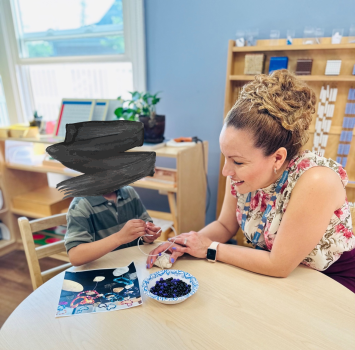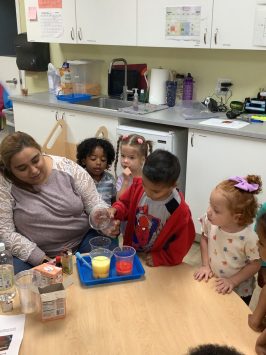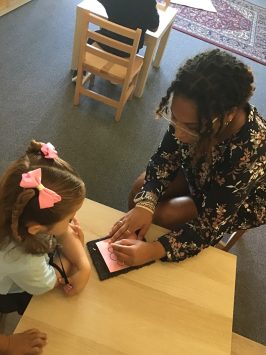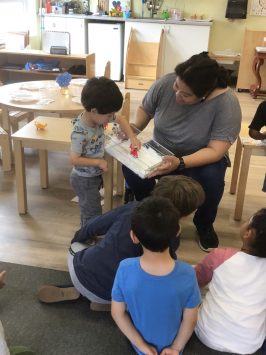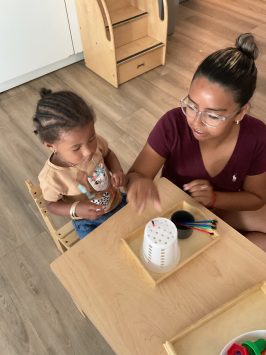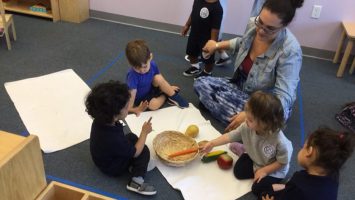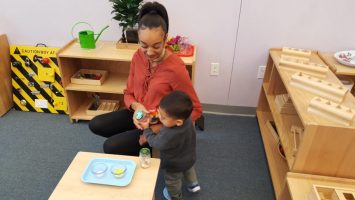Montessori Overview
 The Montessori Method was developed by Dr. Maria Montessori in Italy over a hundred years ago. Dr. Montessori was the first female doctor in Italy, and through her observations of the children of working class parents in the slums of Rome, she discovered a completely novel approach to teaching children. Since then, her philosophy has spread across the globe and today there are over 3000 Montessori schools in the United States alone. The philosophy is not just for preschool either. It extends through the elementary grades and is gaining momentum at the high school level.
The Montessori Method was developed by Dr. Maria Montessori in Italy over a hundred years ago. Dr. Montessori was the first female doctor in Italy, and through her observations of the children of working class parents in the slums of Rome, she discovered a completely novel approach to teaching children. Since then, her philosophy has spread across the globe and today there are over 3000 Montessori schools in the United States alone. The philosophy is not just for preschool either. It extends through the elementary grades and is gaining momentum at the high school level.
“To aid life, leaving it free, however, that is the basic task of the educator”
– Maria Montessori
 The following are the major hallmarks of the Montessori Method:
The following are the major hallmarks of the Montessori Method:
- Its application is universal. The results can be successfully achieved in any country and with any racial, social, cultural or economic group.
- It reveals the small child as a lover of work, both of the intellect and of mastery of the body (especially the hand). This work is spontaneously chosen and carried out with profound joy.
- Through his work, the child shows spontaneous discipline. This discipline originates within him and is not imposed from without. This discipline is real as contrasted with the artificial discipline of rewards and punishments prevalent under other methods.
- It provides suitable occupations based on the vital urges of the child at each stage of development. Each stage is successfully mastered before the next is attained.
- It offers the child a maximum of spontaneity in choice of physical and mental activity. Nevertheless the child reaches the same or higher levels of scholastic achievement as under old systems.
- Each child works at his own pace. The quick are not held back nor are the slow pressured. The opportunity for group work is abundant, and the children spontaneously offer help with the work they have mastered to those children who have not.
- It enables the teacher to guide each child individually in each subject according to his own individual requirements.
- It allows the child to grow in biological independence by respecting his needs and removing undue influence of the adult. It allows the child a large measure of liberty based on respect for the rights of others. This liberty is not a permissive license, but forms the basis of real discipline.
- It does away with competition as a major motivation for learning. The child competes with himself. It presents endless opportunities for mutual work and help, joyfully given and received.
- Develops the whole personality of the child, not merely his intellectual faculties, but also his powers of deliberation, initiative, and independent choice with their emotional complements. The child lives as a free member of a real social community and is trained in those fundamental social qualities which form the basis of good citizenship.
“The first duty of an education is to stir up life, but leave it free to develop”
– Maria Montessori

